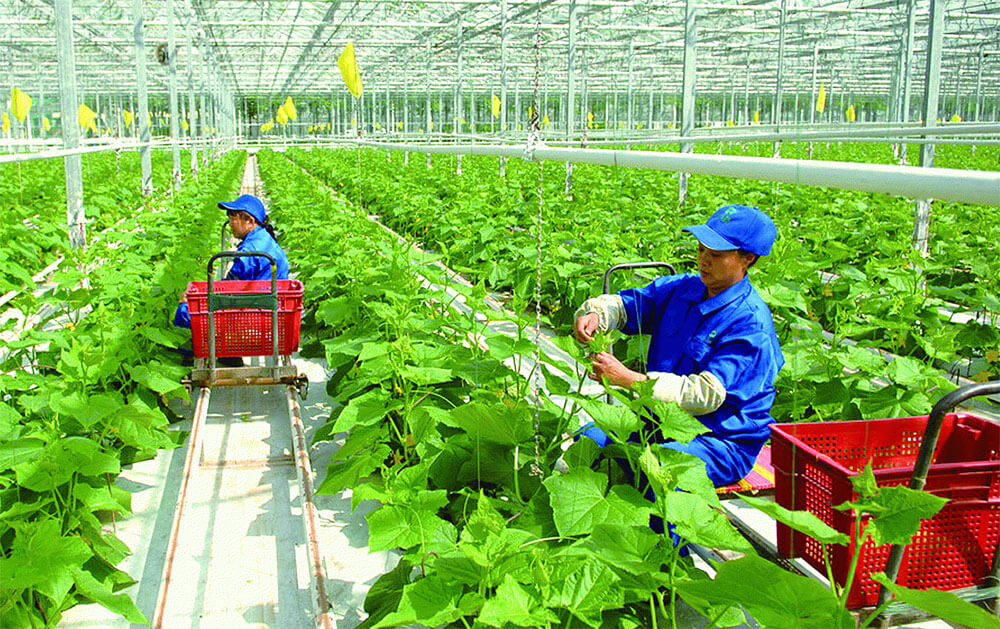Hà Nội has stepped up support for cooperatives and enterprises in developing a traceability system for agro–forestry–fishery products to ensure transparency regarding origins.
The effort to tighten the management of the origin of agricultural and food products has paid off with many products seeing stable sales and gaining the trust of consumers living in the capital city and surrounding areas.
Director of Tiên Dương Organic Agricultural Cooperative in Đông Anh District Phạm Thị Lý said that with cooperatives deploying the model of organic agricultural production in the chain, all products were monitored following a strict production process from cultivation, processing to packaging.

Specially, 100 per cent of vegetables, tubers and fruits are stamped with QR codes to help consumers trace the origins and quality of products through their smartphones.
Doãn Văn Thắng, director of Vân Nam Agricultural Cooperative in Phúc Thọ District, shared that the cooperative called on farmers to maintain cultivation areas, introduce new varieties and apply science and technology in production and harvesting to increase yield and quality.
There is also a focus on strengthening research and investment in modern machinery and to diversify products to improve quality and join the One Commune – One Product programme.
Director of the municipal Department of Agro-Forestry-Fishery Product Quality Management Nguyễn Thị Thu Hằng said that Hà Nội has promoted the development of an origin traceability system with the launch of the portal at check.hanoi.gov.vn.
To date, the portal has provided 3,229 accounts for cooperatives and firms with more than 11,700 sets of traceability codes for products meeting food safety criteria.
Hà Nội has developed an integrated rapid warning system and food safety risk analysis on a GIS-based platform to strengthen the management of food safety in the city.
The city also built an online system to test food safety knowledge for establishments operating in agriculture.
The use of QR codes also helps management agencies improve the control over food hygiene and safety.
Head of the Economics Department at Thanh Trì District People’s Committee Nguyễn Thị Tuyết Anh said that the district would continue to provide support to the development of safe food chains and the use of QR codes, and will run more promotions of products, including in fairs inside and outside the district.
They will strengthen post-inspection work and provide financial support for the analysis of food samples for quality control, she said, adding that the district will also cooperate with units to increase participation in trade fairs to introduce and promote products with QR codes.
According to Mai Quang Vinh, Chairman of the Union of Digital Economy Cooperatives, provinces and cities should open a common portal for the management and supervision of food products, which would integrate information from thousands of cooperatives to ensure transparency.
Deputy Director of the municipal Department of Agriculture and Rural Development Nguyễn Ngọc Sơn said that Hà Nội proposed the Ministry of Agriculture and Rural Development to issue national criteria and standards for the origin traceability system as well as regulations about the application of information technology in QR code tracing.
Hà Nội will speed up the implementation of the city’s origin traceability system to integrate it into the national portal by 2025, he said.
Support will also be provided to the local production and distribution establishments to register and use QR codes for origin traceability. — VNS